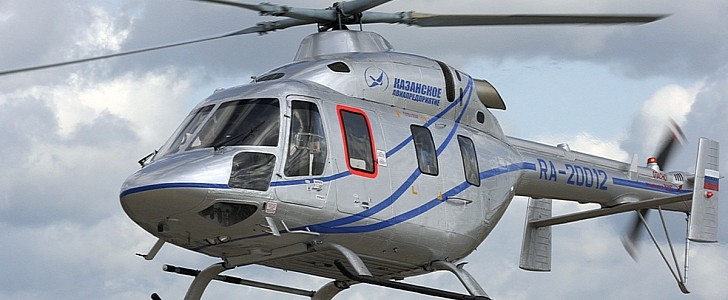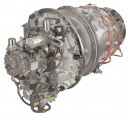Obtaining certification for the latest version of one of its most popular helicopter engines would mean something to be celebrated for any manufacturer. But in the case of Pratt & Whitney Canada, it’s basically zero because this new engine won’t be able to power the Russian helicopters it was meant for.
Back in 2019, Maxim Prokhorov from Russian Helicopters was presenting Ansat as the latest lightweight twin-engine model. The new helicopter was manufactured at the Kazan Helicopters plant, with its name taken from the Tatar language, where it means “simple.” Although, according to Prokhorov, the entire design was based on “the philosophy of simplicity,” the Ansat was meant as a versatile rotorcraft, fit for passenger transportation, cargo, and search-and-rescue operations.
Boasting a cruising speed of 250 kph (155 mph) and a range of at least 500 km (310 miles), the Ansat was powered by two PW-207K gas turbine engines. The PW-207K is the 700 shaft horsepower model from Pratt & Whitney’s PW200 engine family.
After having applied for certification of the PW-207K engine in May 2021, Pratt & Whitney obtained it earlier this month, according to EASA (European Union Aviation Safety Agency) official documents. But, as Flight Global reports, “the approval is almost meaningless” because of the international sanctions against Russia.
Soon after the invasion of Ukraine began in February this year, the sanctions against Russia included the interdiction for Russian airlines to have access to aircraft, engines, and spare parts that are made in any of the countries that support the sanctions.
Pratt & Whitney was also supposed to deliver 20 PW1400G engines to the Russian aircraft manufacturer Irkut this year for the MC-21-300 airliner. However, since deliveries were stopped, Irkut is allegedly working on retrofitting the airliner with the PD-14 engines made locally.
It’s impossible to say whether Pratt & Whitney will resume its relations with Russian manufacturers once the sanctions are dropped. That’s because Russia was announcing its bold plans of relying only on domestically-produced components for its aircraft even before the war. But there are no official statements regarding Ansat from the Russian manufacturer.
Boasting a cruising speed of 250 kph (155 mph) and a range of at least 500 km (310 miles), the Ansat was powered by two PW-207K gas turbine engines. The PW-207K is the 700 shaft horsepower model from Pratt & Whitney’s PW200 engine family.
After having applied for certification of the PW-207K engine in May 2021, Pratt & Whitney obtained it earlier this month, according to EASA (European Union Aviation Safety Agency) official documents. But, as Flight Global reports, “the approval is almost meaningless” because of the international sanctions against Russia.
Soon after the invasion of Ukraine began in February this year, the sanctions against Russia included the interdiction for Russian airlines to have access to aircraft, engines, and spare parts that are made in any of the countries that support the sanctions.
Pratt & Whitney was also supposed to deliver 20 PW1400G engines to the Russian aircraft manufacturer Irkut this year for the MC-21-300 airliner. However, since deliveries were stopped, Irkut is allegedly working on retrofitting the airliner with the PD-14 engines made locally.
It’s impossible to say whether Pratt & Whitney will resume its relations with Russian manufacturers once the sanctions are dropped. That’s because Russia was announcing its bold plans of relying only on domestically-produced components for its aircraft even before the war. But there are no official statements regarding Ansat from the Russian manufacturer.








